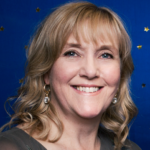
Another sensational article from Julia Richards, our dear friend who runs a herbal medicine practice in Yorkshire. Thank you Julia…..Great article and a quiz to take as well! It’s a really good reminder that rest is more than sleep.
Why you need seven types of rest
With the ups and downs of lockdowns and local restrictions you might have found yourself getting back into the full swing of things after a period of living and working at a slower pace or retreating back into life at home with all the stresses and strains that living on top of each other or alone can entail. Whichever way, this may have been taking a toll on your physical, mental and emotional health. Which leads me to ask, when you do get the opportunity, are you resting effectively? Did you know that Dr Saundra Dalton-Smith has identified seven different types of rest required to really feel restored? She argues that we need to do something in all seven areas to rest well. Viva70 is all about living a good life at any age and in order to do this you need energy, stamina and resilience. Learning to rest well will help you obtain and maintain these qualities.
Seven types of rest
- Mental
The ability to quieten mental chatter and focus on the things that matter.
- Spiritual
Dalton-Smith states this is the capacity to experience God in all things and recline in the knowledge of the Holy. Some may be put off by this. However, I think you can apply it to whatever religious or spiritual beliefs you hold. To me, this is about taking time to connect to the world around you.
- Emotional
The freedom to express your honest feelings and eliminate people-pleasing behaviours.
- Social
The ability to recognise relationships that fuel and drain you, with the courage to avoid or eliminate the drainers.
- Sensory
The opportunity to reduce the constant sensory input received from electronics, media, fragrances and background noise.
- Creative
The experience of allowing beauty to inspire and spark ways of expressing yourself.
- Physical
The chance to use your body in restorative ways to decrease aches and pains and other stress related symptoms and thereby promote health.

How effective are you at resting?
Take Dr Dalton-Smith’s quiz here to determine which types of rest you are good at and which ones you need to start incorporating into your daily life.
Tips for scheduling rest activities into your day
Mental rest
- When you eat or drink don’t do anything else. No TV, devices or reading. Savour the flavours and textures.
- Take micro breaks several times a day: close your eyes, take some deep breaths and do nothing; stretch; or go outside. Set an alarm to remind you.
- Do some mindless activities like rearranging some ornaments or cushions, filing or trimming a plant.
- Get your thoughts out of your head and onto paper which you can then shred, burn or recycle.
Spiritual rest
- Notice the changes in light and temperature at the start and end of the day. Look out of your window daily and notice the changes in nature.
- Take a few moments to listen to some uplifting music, a podcast or read some inspirational words.
- Pray or list down five things you are grateful for each day. You can also find some tips in one of our previous articles here.
Emotional rest
- Know your own goals and intentions so you can say yes to what matters.
- Start saying no to things you do to please others so you have more time to do the things that are on your agenda.
- After a happy/sad, enjoyable/awful, creative/boring, easy/stressful experience take a few moments to reflect on what feelings this gave you and which ones you observed in others.
- Learn to express your feelings rather than bottling them up: “I feel X when you [list the behaviour]” or “ I felt X when I or we did [ state the activity or experience].”
Social rest
- Increase contact with people who energise you and reduce it with those who don’t.
Sensory rest
- Do something every few hours to awaken your senses: set up a sensory draw or box where you sit to relax or work. Include a favourite essential oil or perfume to smell, herbal teas and nourishing snacks to eat and drink, something to feel like a stress ball or massage roller.
- Take an electronic break: listen to music; get some fresh air; stroke a pet; or stand barefoot on the grass.
Creative rest
- Make time to enjoy the arts live or online: look at works of art or artefacts; watch or listen to a play, opera, ballet, dance or comedy. Start an arts review club amongst friends to discuss books, plays, music and art exhibitions.
- Can you take up a creative hobby? There are many online classes at the moment.
- Get an adult colouring-in book and pencils and keep it handy to colour-in for a few minutes several times a day or doddle / sketch something. You can colour whilst while waiting for the kettle to boil or whilst on hold on the phone.
Physical rest
- Google chair exercises and chair yoga or tai chi and do these throughout the day.
- Have a short walk daily or do some form of physical activity.
Over to you
We’d love to hear how you are resting effectively.

Julia Richards is a qualified Medical Herbalist and Director of Enhance One Limited, a consultancy passionate about helping individuals, groups, families, communities and organisations be the best they can be physically, mentally and emotionally. To achieve this, Julia uses a holistic approach to help you enhance yourself by drawing on her experience and studies in personal development, life coaching, aromatherapy, nutrition, herbal medicine and other wellbeing techniques. Julia helps you design a wellbeing plan that is unique to you and works in a complementary way with your doctor or any other therapist you are seeing to help you make improvements in your health. Julia offers individual consultations and group workshops.
Feature image with thanks Jens Johnnson
